I visited Madeira for the first time 25 years ago. I came here for my girlfriend, but also because it’s a beautiful island. It’s not too hot, not too cold, and the weather is always good. It rains very little in Funchal, where we live. It’s very easy to be happy here.
It’s a small island with approximately 250,000 inhabitants, but the gastronomic culture is very impressive, and it’s easy to understand why. Madeira was colonised by families from different parts of the world. In one area, you’ll find Moroccans; in another, people from the north of Portugal, so there are communities that eat couscous and others who love dried fish. It’s that huge plurality that makes Madeira so special.
Tourism is within Madeira’s DNA, and its gastronomy is developing as young chefs open restaurants and tourists are up for trying new things. Roughly 10 years ago, British tourists wanted to eat fish and chips because that’s what they were comfortable with, so it was difficult for chefs to do something different. Now we get young people who travel all over the world and want to try new things as well as the typical and traditional food.
What’s really cool right now is that local chefs are returning to Madeira. Typically, all the good cooks leave Portugal to train abroad for higher salaries, but because of Covid, people are coming back to the island. We just hired a Madeiran cook at one of my restaurants who worked for Heston Blumenthal at the Fat Duck. People are choosing a better quality of life.
Local produce
Madeira has extremely good seafood, and the fruit and vegetables are out of this world. While elsewhere in Europe you might get one potato harvest a year, in Madeira we have several production cycles.
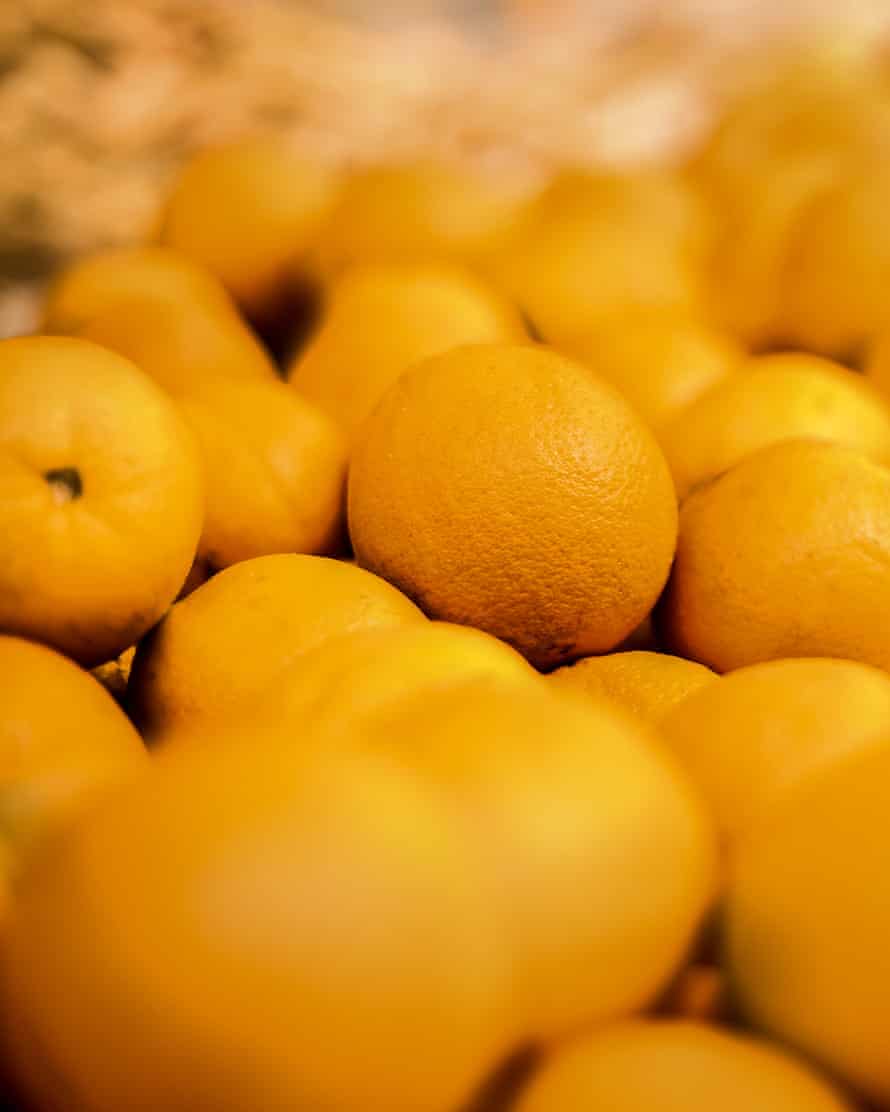
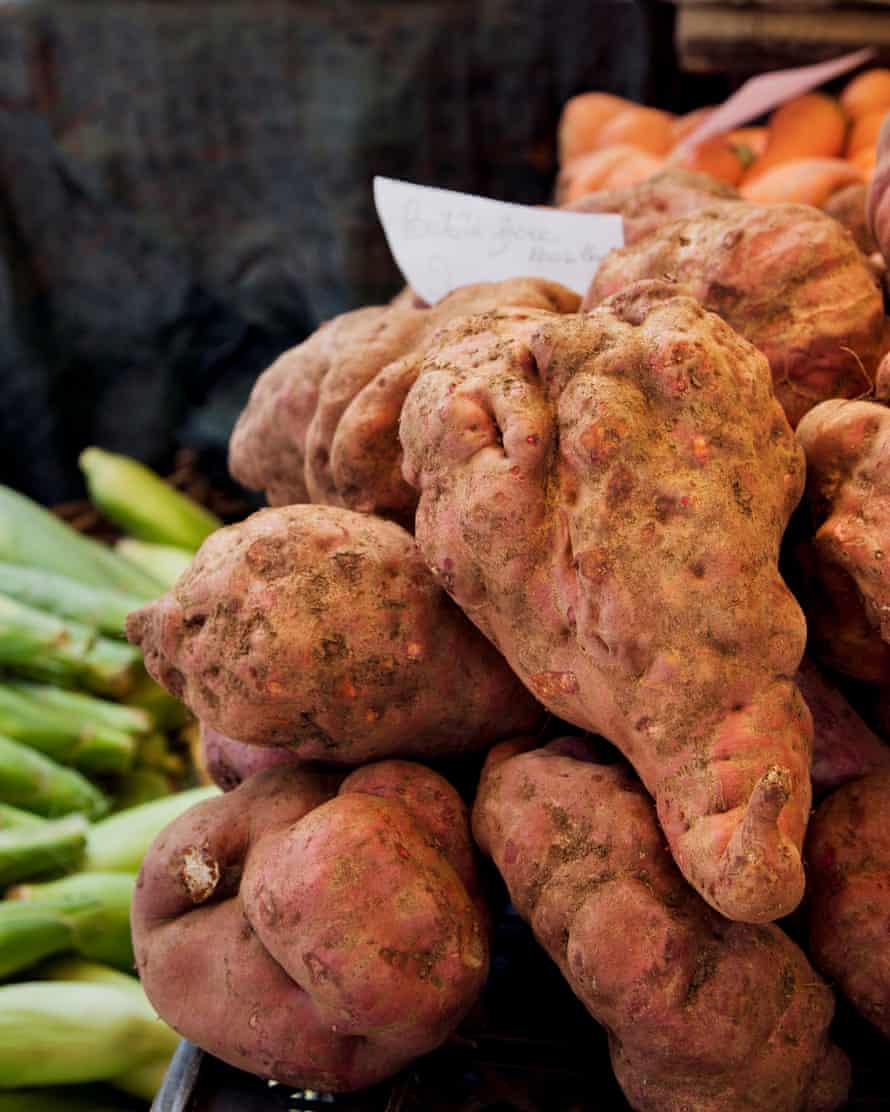
Pitanga (surinam cherry) is a little red berry that’s very acidic but also very sweet. It makes a really interesting reaction in your mouth.
The local tangerines are the best and most fragrant you’ll find anywhere in the world. I would happily spritz tangerine perfume on my neck.
Our sweet potatoes are unbelievable. Madeira used to be a volcano, so it’s very volcanic. They pull the sweet potatoes out of the ground then leave them in the sun, which intensifies the sugars. They’re incredibly sweet and unique.
The leaves and flowers of vegetables, such as cabbage and turnip, are extremely tasty here. They grow fast, so the leaves are tender and flavoursome.
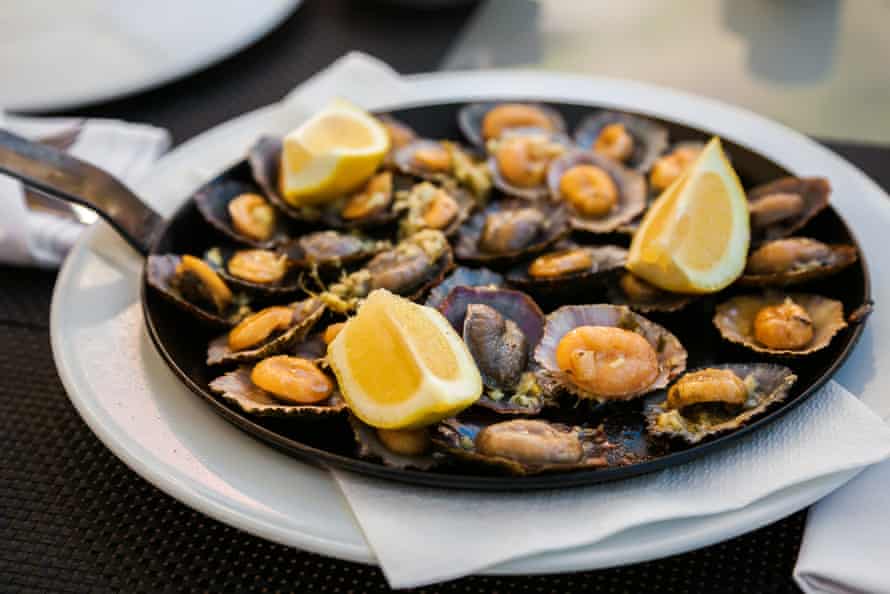
Lapas (limpets) are cooked with their shells facing downwards. Some restaurants add garlic butter or lemon juice. I like to eat them on their own – a pure taste of the sea.
Pereira’s picks
The first thing you should do when you get off the plane is a guided tour at Blandy’s Wine Lodge to learn the history of Madeira and how difficult it is to work in agriculture here. There are no machines, no tractors. Everything is done by hand because the terrain is so steep.
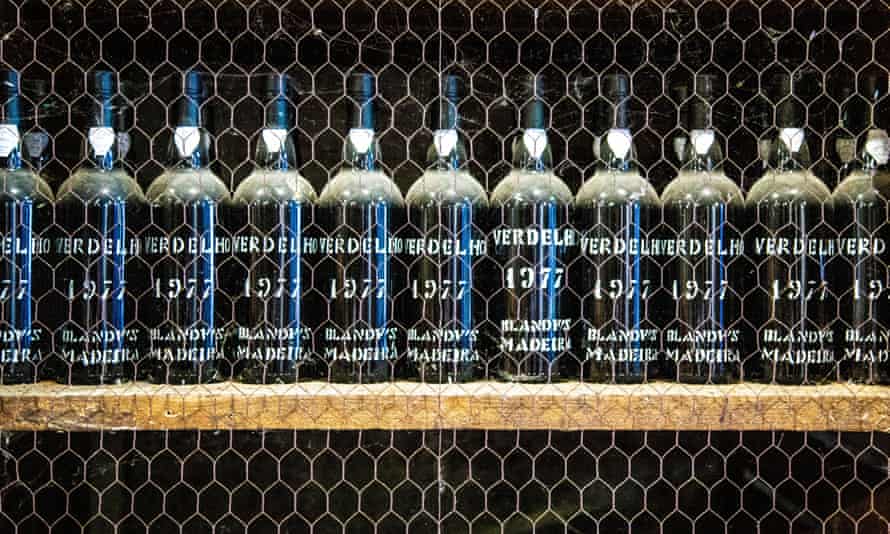
One of the places I love to go is a restaurant called O Clássico. As the name suggests, it’s very classic and the waiters wear bow ties. You can get really good octopus rice here.
There’s a lot of competition for traditional espetadas (kebabs) but, for me, it has to be Restaurante Viola. The place is beautiful and the food, too. Order the beef kebabs with fried cornmeal.
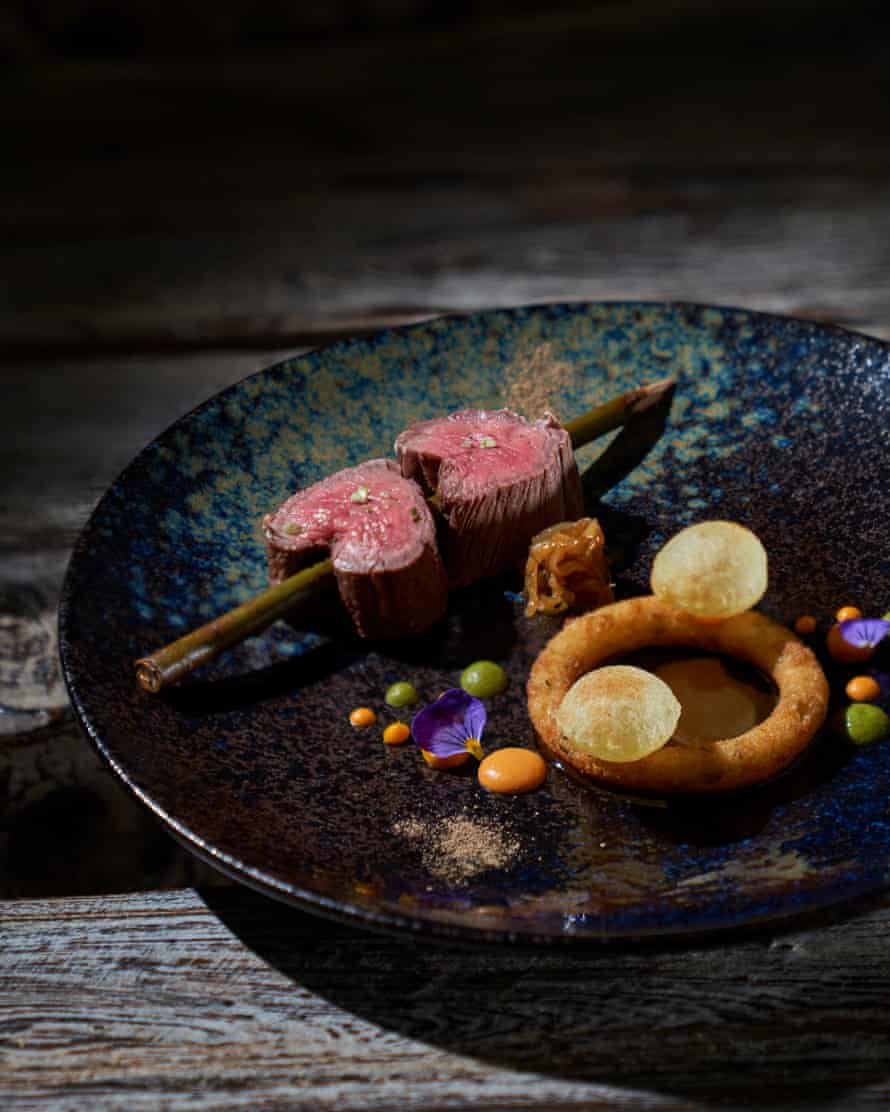
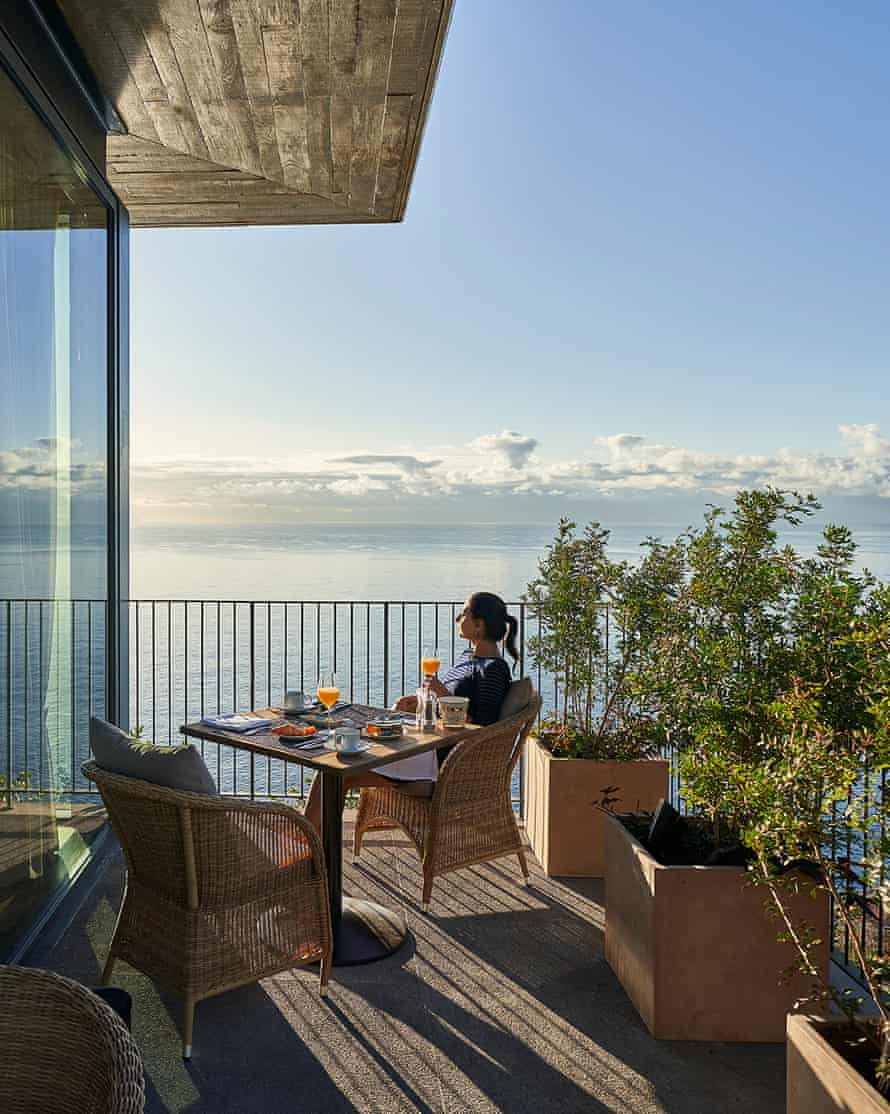
Il Gallo d’Oro is a two-Michelin-star fine dining restaurant at The Cliff Bay hotel, run by chef Benoît Sinthon. They work with fresh, high-quality ingredients from the area. Also at The Cliff Bay under Sinthon is Avista restaurant, which specialises in Mediterranean and Asian food for sharing. The view of the ocean is incredible.
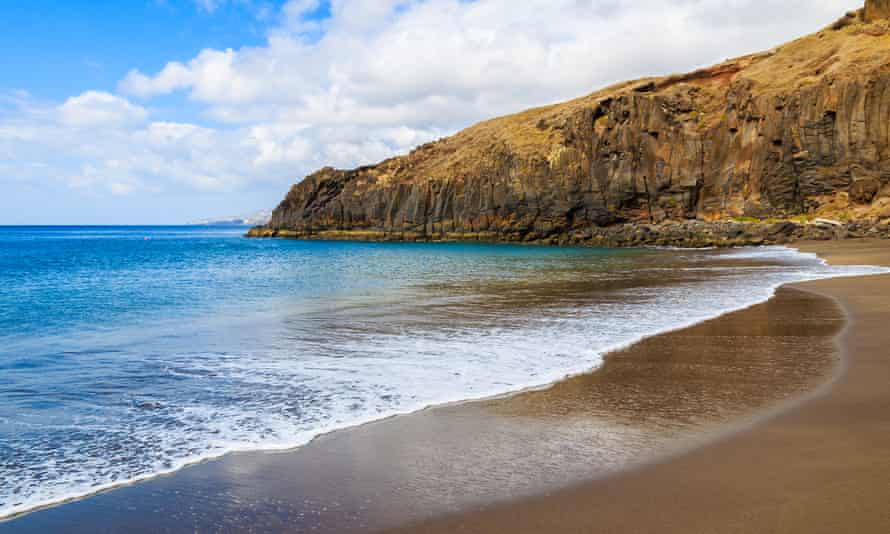
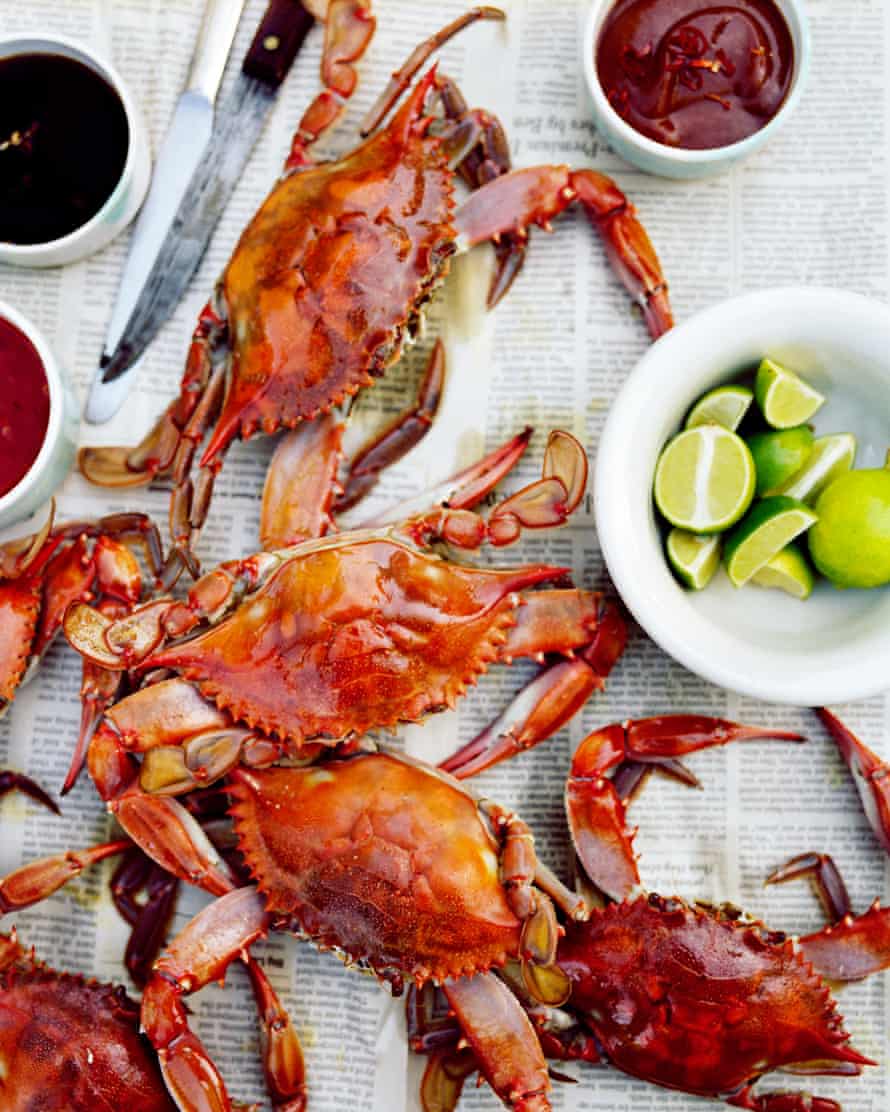
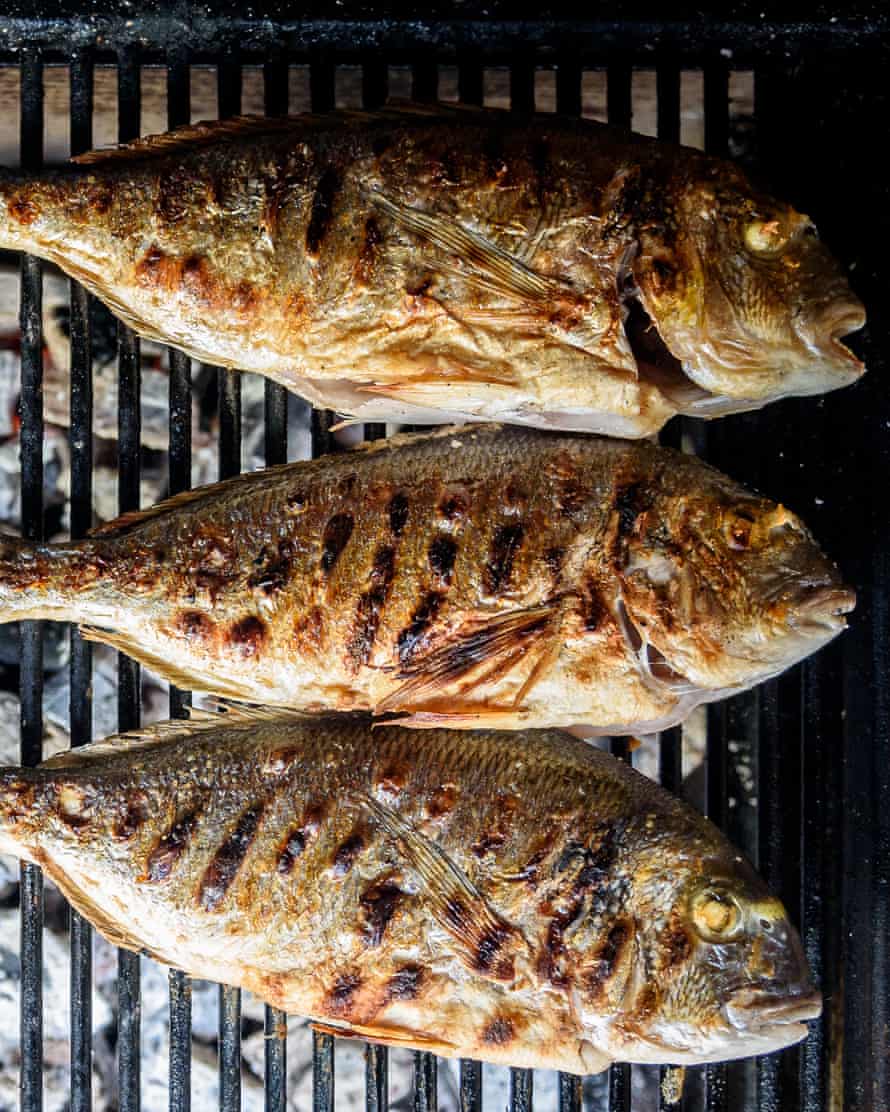
Finally, MaréAlta in Machico beach is a wonderful place – the fish and seafood are excellent.
Pereira’s restaurants – and what to order
I have three concepts: Kampo, for meat and vegetables; Ákua, for seafood and fish; and Kôdea, a bakery.
Kampo
The name comes from “campo” (“countryside” in Portuguese), because that’s the cuisine I’m most comfortable with. I was born into a farming family in Carvoeiro, a small village on the west coast of Portugal. We want people to try as many new flavours, textures and experiences as possible. Try the popular open oxtail ravioli with foie gras mousse and truffle, then finish with the yoghurt and white chocolate mousse with black olives. kampo.pt
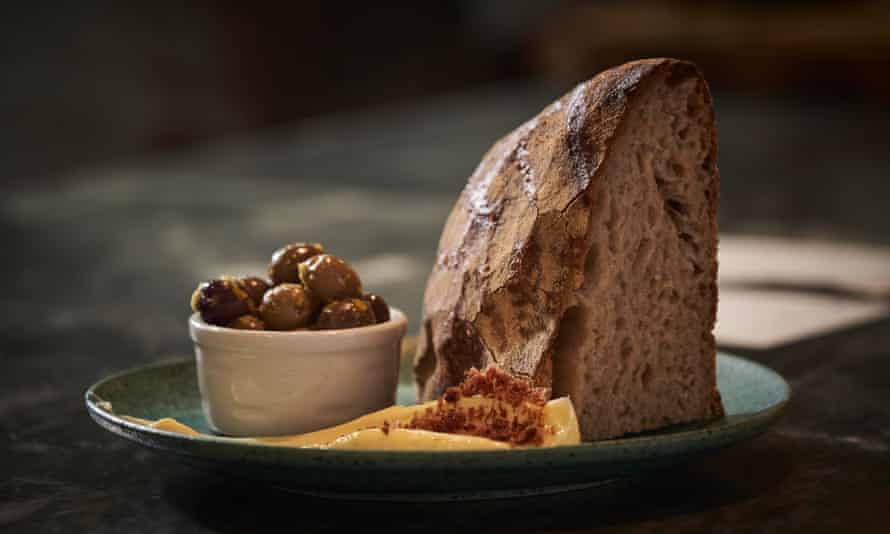
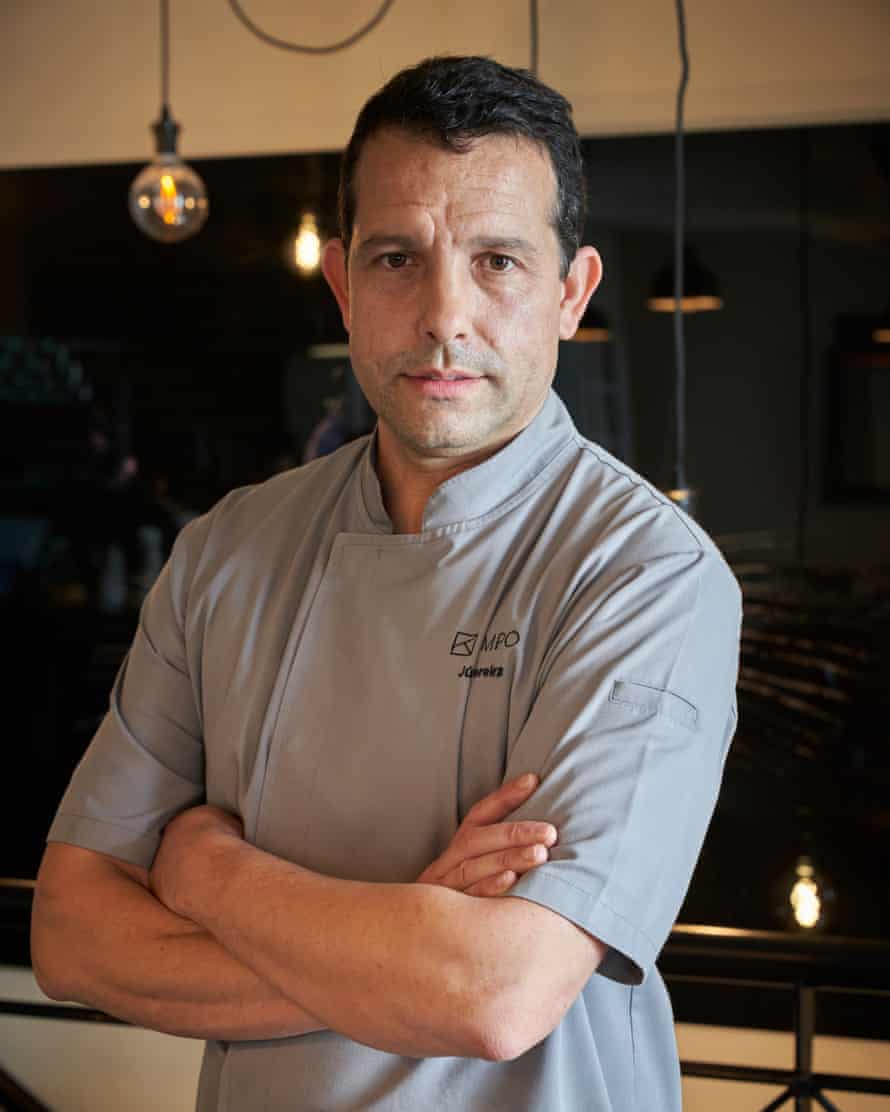
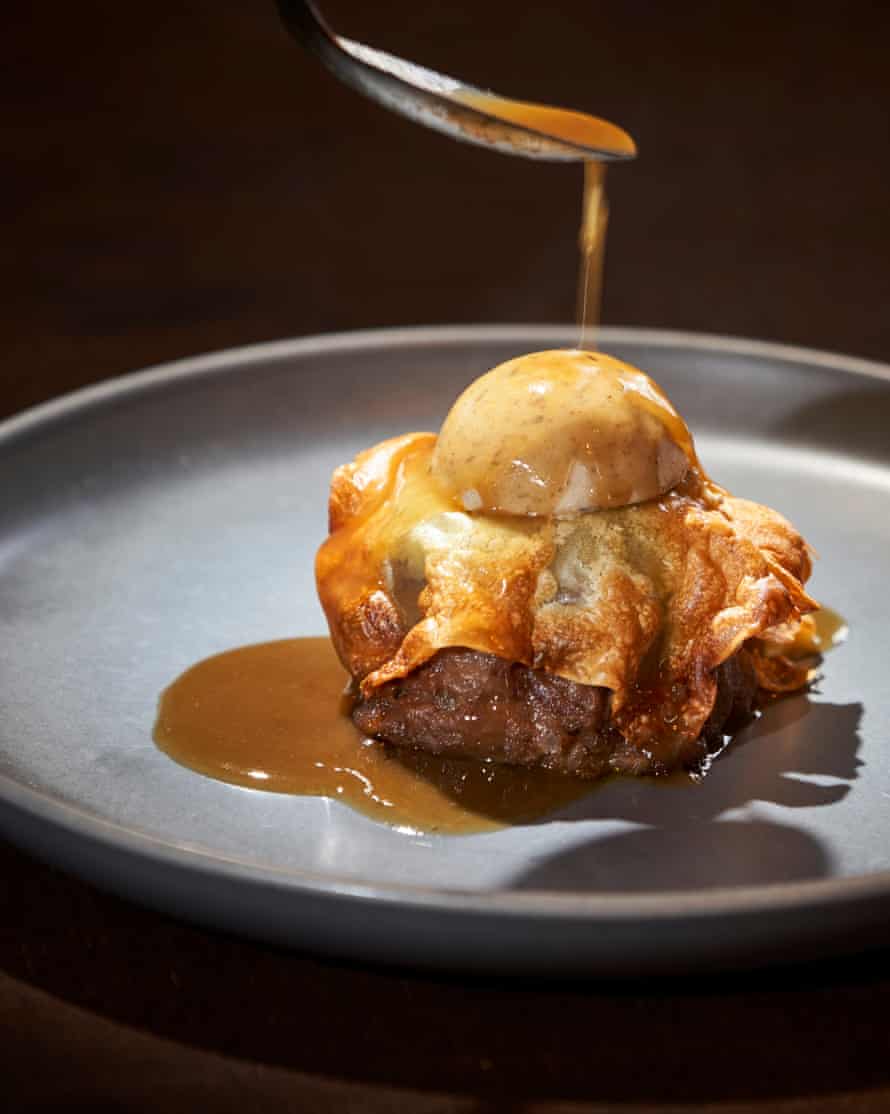
-
Each of Pereira’s restaurants has a different theme, but they share bread from his bakery: ‘We put a lot of effort into our bread and desserts because the beginning and the end of a meal are so important’
Ákua
We opened Ákua six months after Kampo, specialising in seafood. One of our signature dishes is the tuna tartare cornet. Madeira has incredibly good tuna – among the best in the world. In Portugal, we also have a strong sardine tradition, so we serve them marinated in sea water and vinegar, with aubergine, passionfruit sauce and tomatoes – outside-the-box but interesting. akuafunchal.pt
Kôdea
Bread is a signature at both our restaurants, which is why we opened a bakery. We make a sourdough using flours that are very balanced in terms of acidity. It’s bread made by chefs, not by bakers, so it’s very light and different. We put a lot of effort into our bread and desserts because the beginning and the end of a meal are so important. People like to be welcomed with a hug and then leave with that “wow” feeling. instagram.com/kodeabakery
Jet2holidays offers full holiday packages with hotel, free transfers, 22kg baggage and direct flights to Madeira from London Stansted, Newcastle, Manchester, Leeds Bradford, East Midlands, Birmingham, Glasgow, Edinburgh and Bristol. Its award-winning customer service has been recognised by Which? (best airline) and TripAdvisor (top 10 airlines of the world).






